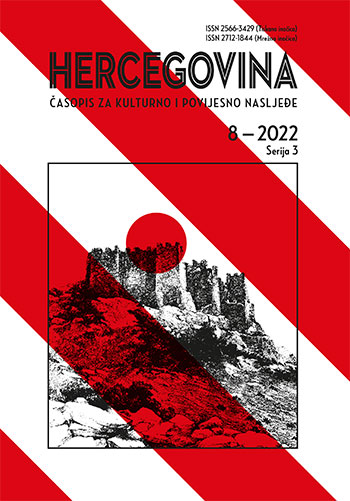Građanska desnica 1984.-1989. - prilog istraživanju tipologije unutarnjih neprijatelja socijalističke Jugoslavije
The Civil Right 1984-1989 – Supplement to Researching the Typology of Internal Enemies of Socialist Yugoslavia
Author(s): Davor MarijanSubject(s): Political history, Post-War period (1950 - 1989), History of Communism
Published by: Filozofski fakultet Sveučilišta u Mostaru - Studij povijesti i Hrvatski institut za povijest - Zagreb
Keywords: intellectual history; League of Communists of Yugoslavia; Socialist Yugoslavia; internal enemy; civil right; nationalism;
Summary/Abstract: A new category – the civil right – was added to the register of internal enemies of the Socialist Federative Republic of Yugoslavia, which the communist regime understood to be the groups and individuals who have been considered the critical intelligentsia in post-Yugoslav interpretations. The direct reason for its introduction was the assessment that the intellectual opposition and enemies across Yugoslavia were uniting to achieve a partnership position vis-a-vis the League of Communists. The assessment was unfounded, the intellectual opposition, irrespective of how we define it (dissidents, critical intelligentsia, and the like) had very little influence or strong association. It was limited to intellectual reviews and magazines whose circulation was small and whose humble influence could be measured in numbers as several hundred interested people. The regime considered the civil right as its most dangerous opposition in the middle and second half of the 1980s due to its intellectual constitution. Such an assessment was the usual exaggeration of the system which had a habit of giving unacceptable phenomena a decidedly greater significance than was the case. The civil right should be approached as a phenomenon that can be the stimulus for research on intellectual history in the non-liberal society of the last few years of socialism. This new type of enemy greatly “benefited” nationalists, a significant number of whom were assigned into the civil right category, which subsequently meant milder treatment as accusations of nationalism were the severest qualification of the regime in the 1980s, particularly in Bosnia and Herzegovina and Croatia. Serbian and Slovene nationalism benefited the most from the new category. The greater part of the civil right from the mid 1980s was already holding posts, which were undoubtedly nationalist, as early as 1989.
Journal: Hercegovina. Časopis za kulturno i povijesno naslijeđe (od 2018)
- Issue Year: 2022
- Issue No: 8
- Page Range: 253-284
- Page Count: 32
- Language: Croatian

